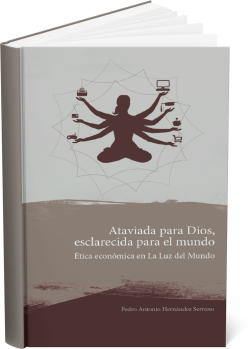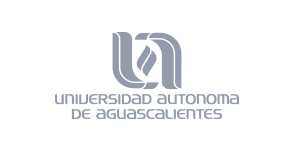DRESSED FOR GOD, ENLIGHTENED FOR THE WORLD: Economic ethics in The Light of the World
Keywords:
The Light of the World, Economic ethics, Beautiful Province, Guadalajara, Mexico, Evangelical Church, ReligionSynopsis
This sociological research work deals with the reconfiguration of the economic ethics of the common members of the Light of the World church located in the Hermosa Province, Guadalajara, Mexico. This is based on the analysis of the conditions and influences exerted on them by beliefs, both religious and secular, at present and in Mexico. The objective of this work is to understand how the economic ethics of the common members are being reconfigured, and under what conditions and influences, as well as to analyze the relations of tension and/or negotiation that they maintain with the institutional apparatus of LLDM, when resolving everything that has to do with their economic performance.
The work carried out by Pedro Antonio Hernández is an excellent testimony of the journey of these paths of observation and self-reflection typical of the sociologist, as it seeks to contribute to the understanding of a phenomenon of great actuality with his vision as is the relationship of religion with the economy in one of the most important churches in Mexico: the church of the Light of the World.
This church founded in Mexico in 1926 has lived, throughout the twentieth century, a process of internal change closely linked to the transformation of the capitalist economy, and in particular, to the growing importance of consumption of the middle and popular classes as a marker of distinction in social life and as the axis of the construction of a successful, desirable and exemplary lifestyle.
In these pages we will see how the economic ethic of the founders of this church is transformed: it goes from an intense valuation of work as a way of sanctification and internal consumption in solidarity for a minority religious community originally made up of migrants from the countryside to the margins of the city of Guadalajara that - in order to remain faithful to the apostle's call to the renewal of the original Christian community - must stay away from the idolatrous Catholic world of indolent poverty that contaminates and distracts it; Then, almost one hundred years after its foundation, it is transformed into a community that grows, that disperses geographically, that raises its educational level, that expands to different countries of the world and comes into contact with multiple realities through this transnationalization as well as the inevitable permeability to the mass media and information technologies. This access expands the horizons of consumption of its members towards the enjoyment of fashion, cultural production around entertainment, vacations, and the construction of an individualistic way of life whose success is based on purchasing power and mastery of the codes of the symbolic world of merchandise.
As can be seen from this approach, this work is not simply a chronological record of these transformations. It is a question of accounting for complex processes in which the internal logic of the religious institution in transnational expansion is combined with the political and, above all, economic transformation of its environment. To this end, Pedro Antonio Hernández uses various conceptual tools of sociological thought, and his own ability to connect with authorities and members of the church, to develop a novel fieldwork whose difficulties did not manage to deter him.

Downloads
Published
Series
Categories
License

This work is licensed under a Creative Commons Attribution-ShareAlike 4.0 International License.













